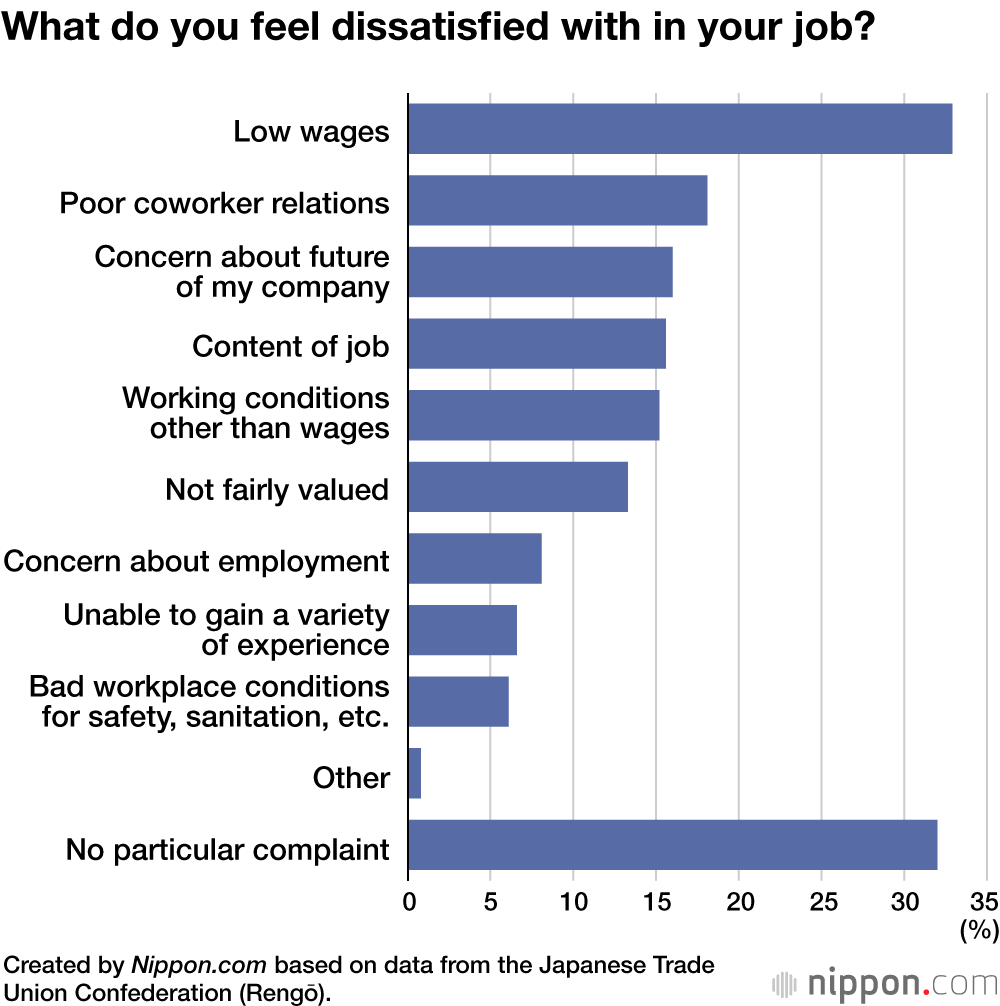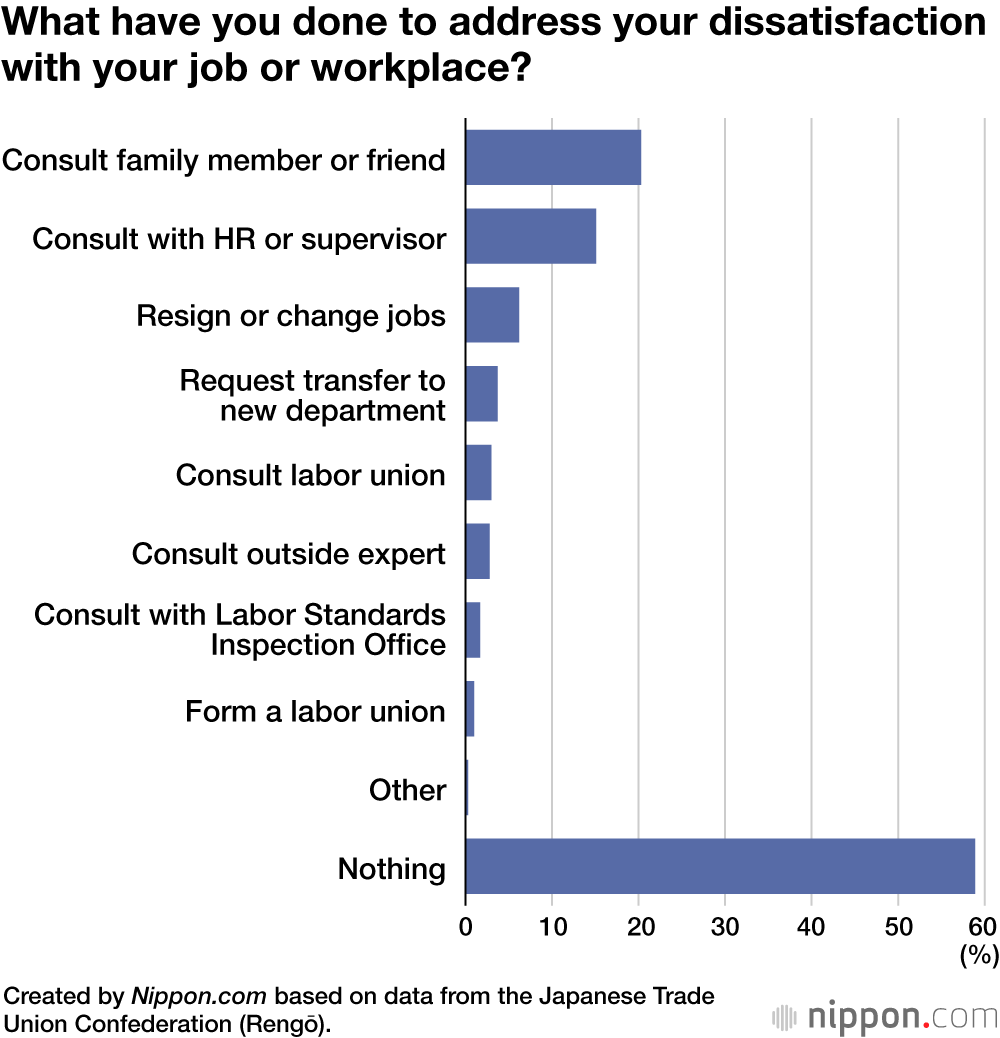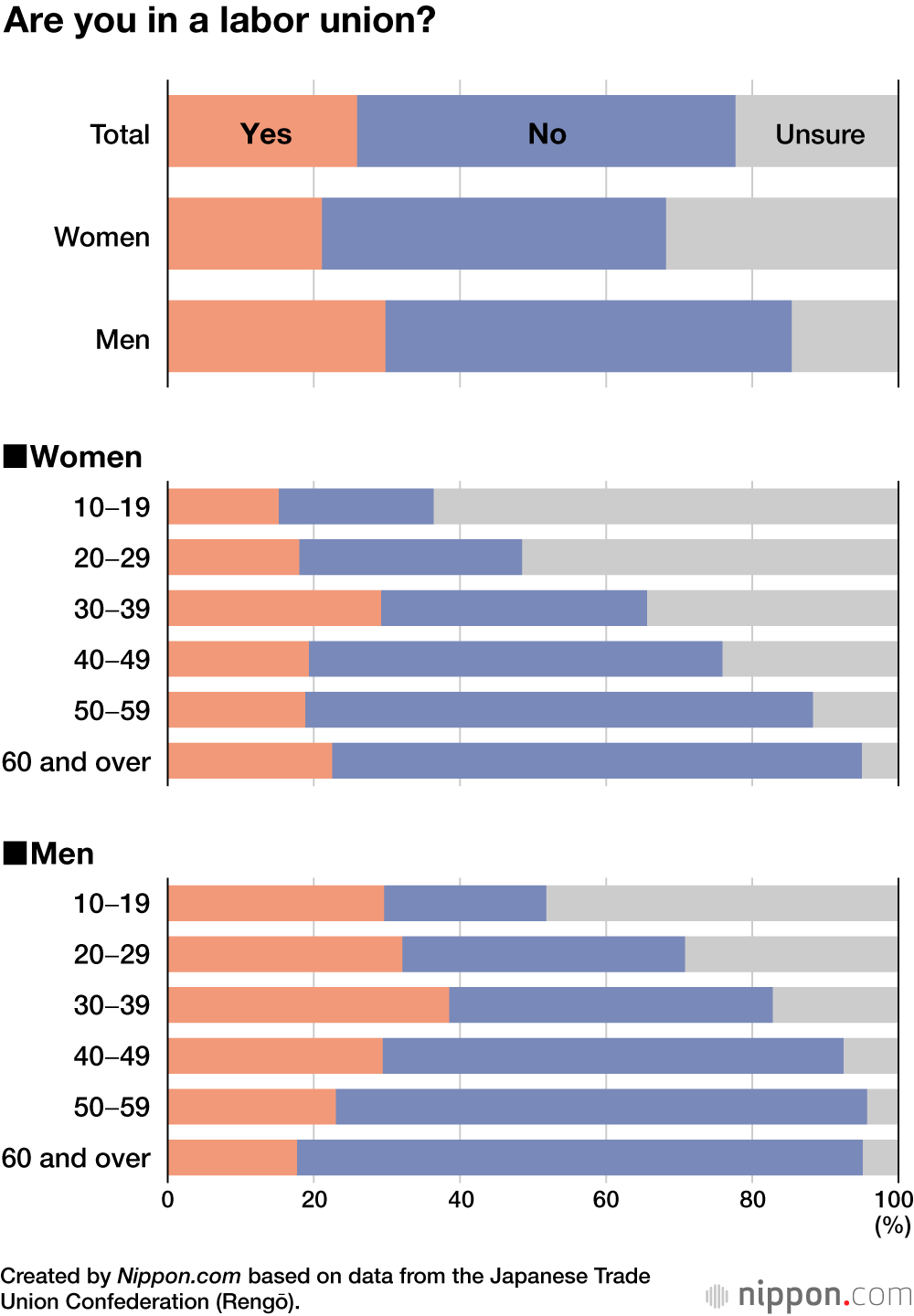
Japanese Workers Not Consulting with Labor Unions
Work Economy Society- English
- 日本語
- 简体字
- 繁體字
- Français
- Español
- العربية
- Русский
The results of a survey on labor unions, conducted by the Japanese Trade Union Confederation (Rengō) in late October 2022, shows that working people in Japan do not view labor unions as organizations that can help them. The online survey was based on 2,000 valid responses from individuals aged 15 or older nationwide.
In response to a survey question about work-related dissatisfaction, the most common problem cited was low wages (32.9%), followed by poor coworker relations (18.1%) and uncertainty about the future of one’s company (16.0%). About two in three of the respondents were dissatisfied with their jobs in some way, while 32.0% said they had no particular complaint.
When those who were dissatisfied with their workplace or job were asked what they had done to resolve the problem, the bulk of them, at 58.9%, said they had done nothing. In other words, most continue to work with a sense of dissatisfaction. Among those who took action, 20.3% consulted with a family member and 15.1% consulted with the human resource department or a supervisor, while just 3.0% consulted a labor union.
Among the survey respondents, 25.9% are members of a labor union, while 51.8% are not. By age group, the younger the respondents, the more likely they were to be unsure about whether they are actually labor union members or not. In particular, 63.6% of women in their teens and 51.5% of women in their twenties were unsure.
(Translated from Japanese. Banner photo © Pixta.)


